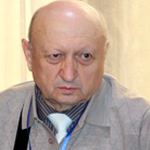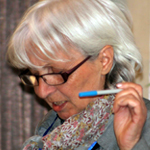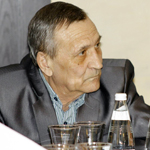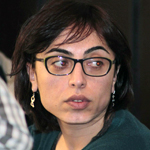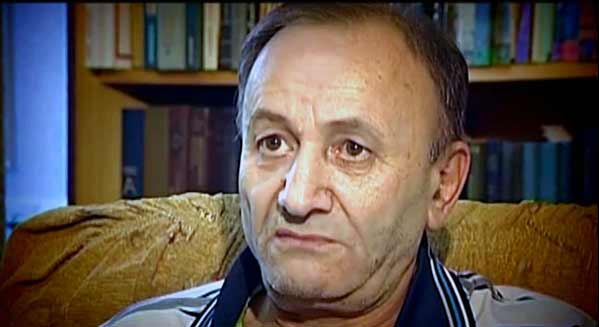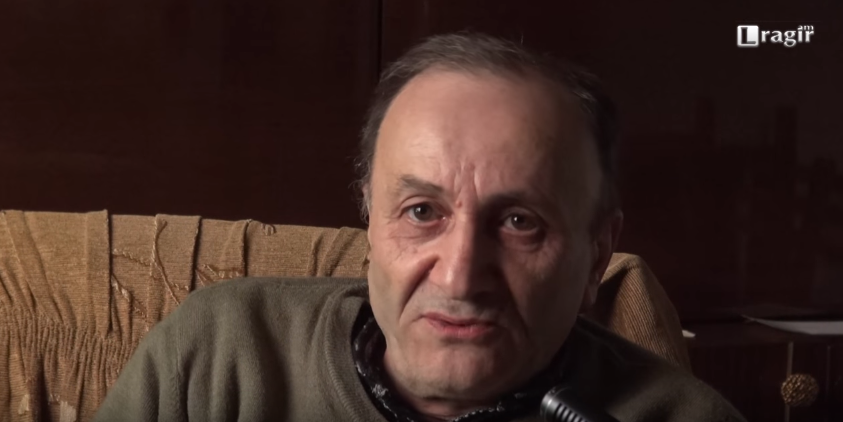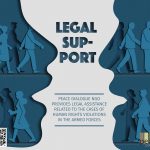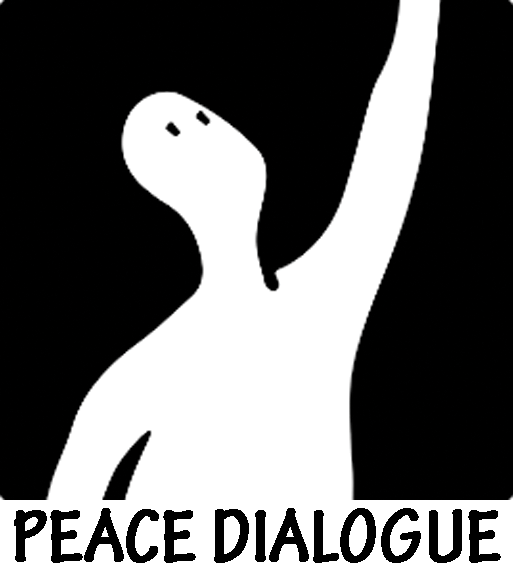Partnership was established between Russian and Armenian human rights defenders who work on the current issues in the army

“I simply don’t understand, is Armenia copying the sad experience of the Russian army or being a bad example for the latter?” – said Russian human rights defender Dmitri Pislar who is the representative of the Moscow’s branch of the Committee of Soldiers’ Mothers of Russia.
While presenting with a speech during the workshop Human rights in the Armed Forces: Systemization of Experience, he announced: “What we have heard during these two days from our Armenian colleagues about the human rights issues in the army makes us feel seriously concerned.”
The workshop held in Yerevan on April 29th and April 30th aimed at providing a working platform for community groups, organizations, activists and the family representatives of the deceased soldiers for critical self-examination and self-improvement of activities in the direction of creating respect towards human rights in the armed forces.
The working meeting consisted of two thematic blocks:
- Joint analysis of the situation on the respective fields of activity of the participants. What are the political and social preconditions for the activities of the participants?
- The role of social movements and groups in shaping civilian control over the military.
During the workshop the experts who are active in the field gave speeches, which were followed by discussions on numerous issues concerning the topics and the analysis of the participants’ experience regarding the issues or their solutions.
During these two days the participants reflected upon the corruption cases in the Armenian and Russian armies, the process of organizing conscription, particularly the issues concerning the activities of the medical examination committees.
|
“…What we have heard during these two days from our Armenian colleagues about the human rights issues in the army makes us feel seriously concerned…” |
Participants also discussed some examples of human rights violations recorded during the preliminary investigation and judicial processes relating to the cases of the soldiers who died in non-combat situations. Moreover, they discussed the role and the activities of civil society groups and organizations in the prevention of such violations.
The question regarding the cooperation with the state bodies for the solutions of these problems became a very hot topic for a debate. The head of the Ufa’s branch of the Committee of Soldiers’ Mothers of Russia (Bashkortostan) Vladimir Simarchuk considered that it was necessary to put pressure on the authorities in order these issues would be solved as soon as possible, however, he also added that the pressure should be not aggressive but deliberate so that it will not turn into a torrent of insults and attacks.
|
“…In many cases the state itself encourages the officers who kill our children in non-combat situations…” |
“Currently we demand the Russian authorities to stop the aggressive policy against Ukraine, however we do all that in a conscious and deliberate way trying to explain to the public that any new military action will lead to new losses and new tragedies”– said Mr. Pislar.
“Of course Russia’s attitude towards the NGO’s and the so called “witch hunt” is quite obvious. This phenomenon has various manifestations: the label given to the NGO’s and activists such as “foreign agents” and the so called “legislative reforms” which, to say the least, do not approve the activities of the NGOs. Many NGOs in Russia cooperate with the military commissariats, and I think that cooperation gives quite positive results in the protection of the soldiers’ rights.”– says Mr. Simarchuk.
|
“…Of course Russia’s attitude towards the NGO’s and the so called “witch hunt” is quite obvious…” |
The Armenian activists, however, have concerns in the cooperation with the authorities: “In many cases the state itself encourages the officers who kill our children in non-combat situations. Some cases include letters of the Minister of Defense, where it is written that softer approach should be applied to the officers who are heroes of Nagorno-Karabakh war.” – said Seda Melikyan, a member of the Army in Reality civil initiative.
Another participant of the workshop Tsovinar Nazaryan said:“Since we are members of the Army in Reality initiative, we try to receive information from the MoD about the cases, and then we raise awareness in the society about the issues, we meet with international organizations, and support the other parents who lost their children. As a result of all this we get acquainted with each other and now we all know each other. We are fighting for the restoration of justice.”
In the end of the two-day workshop the participants discussed what they gained during the discussions and whether the information received during the workshop can contribute to a more effective implementation of their activities.
|
“…We are fighting for the restoration of justice…” |
The mothers of the deceased soldiers who were taking part in the workshop mentioned that due to the workshop they valued the importance of acting united even more and highlighted that it is necessary to support each other in the restoration of justice.
Peace Dialogue NGO’s military expert Ruben Martirosyan mentioned that the workshop gave him an opportunity to meet new colleagues. He added. “We should think how we can help each other. It was great to know that there is an independent forensic expert in Bashkortostan, in the branch of the Committee of Soldiers’ Mothers of Russia. In case we need advice we can turn to him. I would also like to let our Russian colleagues know that we can express our position and support their work directed towards presenting the illegalities in the Russian army. In this way the authorities can see that the issues are already beyond the country’s borders.”
In his final speech Mr. Pislar mentioned: “I could not imagine that you have so many issues in this field in Armenia. I thought you are in a better situation. I feel sorry for this situation, it is really difficult. However, seeing so many active people, I hope that being united we are able to reach positive changes. I hope we will support each other with whatever we can. We have already come to an agreement to cooperate and to support each other.
The workshop has held in the framework of Peace Dialogue NGO՚s Safe Soldiers for a Safe Armenia project The project Safe Soldiers for a Safe Armenia is supported by Pax .
Pax means peace. PAX brings together people who have the courage to stand for peace. Together with people in conflict areas and concerned citizens worldwide, PAX works to build dignified, democratic, and peaceful societies across the globe.
Posted 03 April, 2014

